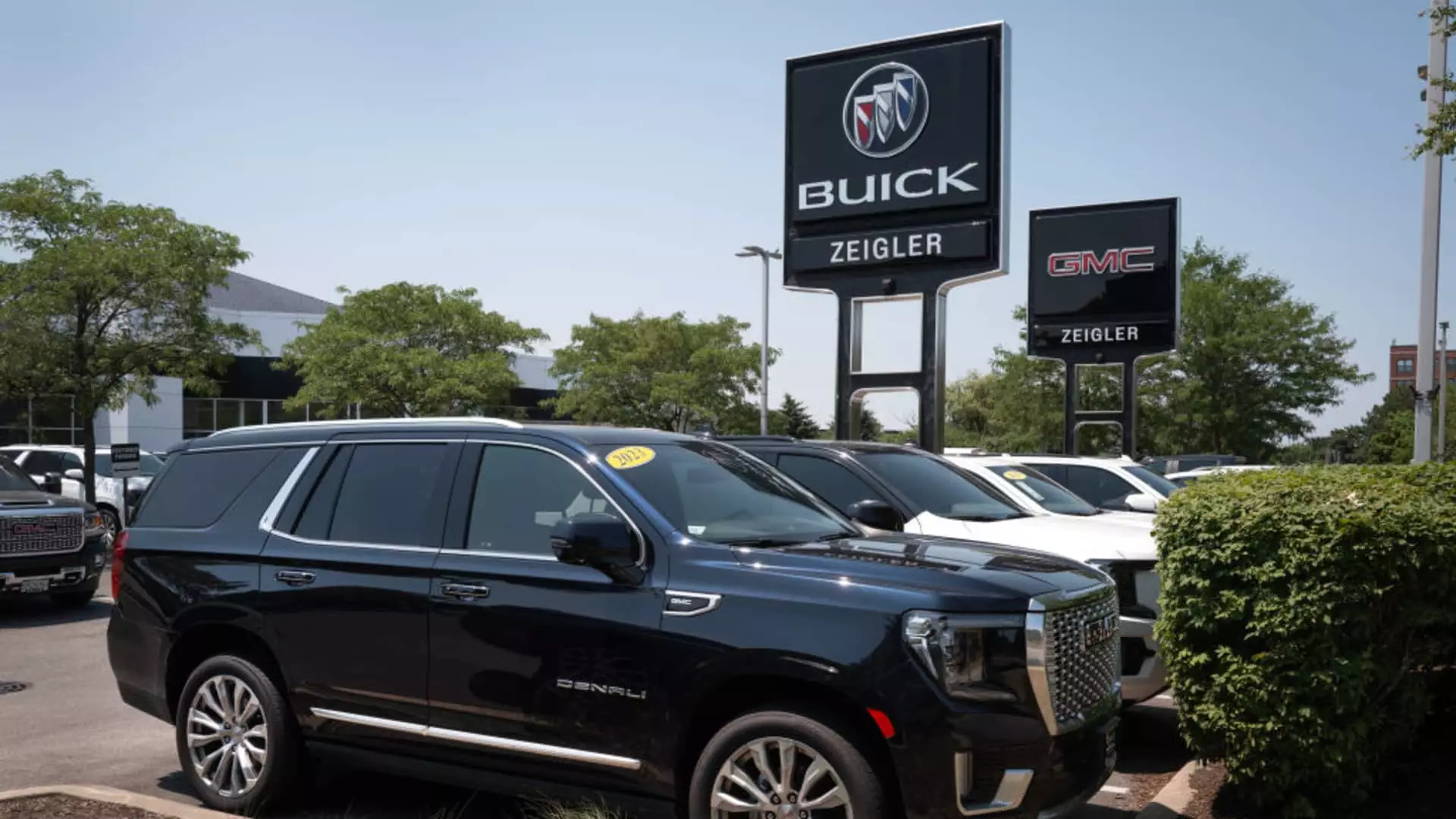General Motors recently reported its best quarterly sales in over three years, with particular increases noted in full-size pickup trucks and all-electric vehicles. The Detroit-based automaker announced sales totaling 696,086 units for the second quarter, representing a 0.6% increase from the previous year. This marks GM’s highest quarterly sales volume since the fourth quarter of 2020. Notably, deliveries of electric vehicles experienced a significant 40% surge compared to the prior year, with 21,930 units sold. However, EVs only accounted for 3.2% of GM’s total second-quarter sales. Sales of GM’s full-size pickup trucks saw a growth of approximately 6% from the previous year, with around 229,000 units sold, representing the best quarterly sales performance since 2021.
One unexpected development in GM’s second-quarter sales was the cyberattacks on dealer software provider CDK Global, which occurred on June 19. This ransomware attack forced CDK, a key player in the market, to shut down its dealer management system, affecting almost half of all dealerships in North America. The disruption caused by the cyberattacks had a significant impact on sales during the latter half of June, a crucial period for dealerships. Jessica Caldwell, the Head of Insights at Edmunds, commented that the CDK cyberattacks disrupted one of the most lucrative and busy times of the month and quarter for dealerships. As a result, some deliveries may be delayed until the third quarter, impacting the overall sales performance for GM and other affected dealers.
Following the CDK cyberattacks, dealerships, including major publicly traded ones, were compelled to delay sales or find alternative solutions to sell vehicles. All six major publicly traded franchised dealership groups disclosed their exposure to the CDK issue, with five out of six relying on CDK as their primary dealership management system provider. Asbury Automotive Group, AutoNation Inc., Group 1 Automotive Inc., Lithia Motors Inc., and Sonic Automotive Inc. were among the impacted dealership groups. Despite the challenges posed by the cyberattacks, Caldwell reassured that unlike other unforeseen events in the industry, sales shouldn’t be lost or severely deferred, but rather pushed into the third quarter to mitigate the impact on overall sales performance.
In comparison to GM, other automakers like Toyota and Hyundai also reported their second-quarter sales performance. Toyota’s U.S. sales totaled 621,549 vehicles during the period, marking a 9.2% increase from the previous year. The Hyundai brand sold 214,719 vehicles, up by 2.2% compared to a year earlier. On the other hand, Kia experienced a 6.5% decline in June sales, with a 2% reduction in sales for the first half of the year, totaling 386,460 vehicles sold. Despite the challenges faced by GM due to the cyberattacks, it is evident that the automotive industry as a whole is adapting to market dynamics and navigating disruptions to maintain sales growth and customer demand.
GM’s second-quarter sales performance, while impacted by the CDK cyberattacks, demonstrated resilience and strategic adaptability in the face of challenges. The evolving landscape of the automotive industry requires manufacturers and dealers to be agile and proactive in addressing unforeseen disruptions, such as cyber threats, to ensure sustained growth and customer satisfaction. As GM continues to navigate the aftermath of the cyberattacks, its ability to rebound and drive sales in the upcoming quarters will be indicative of its operational strength and market resilience amidst external uncertainties.

